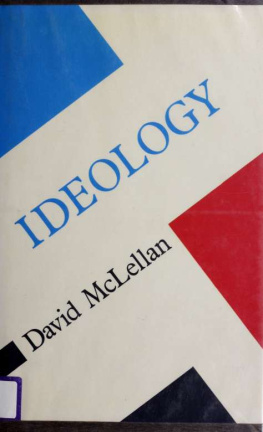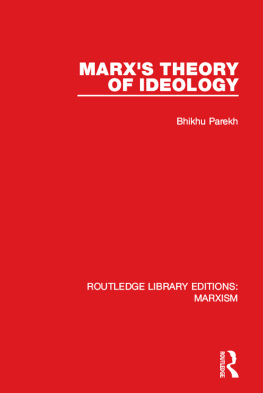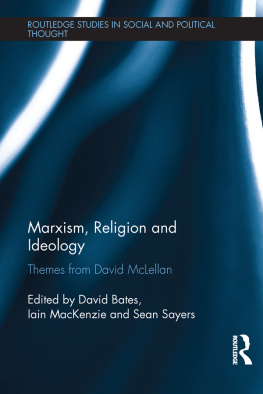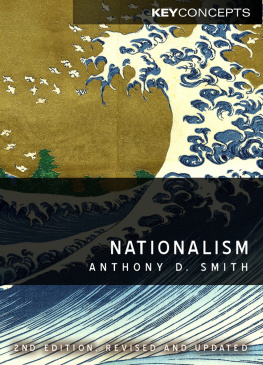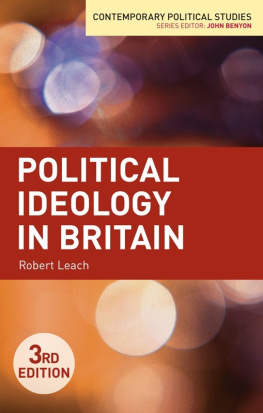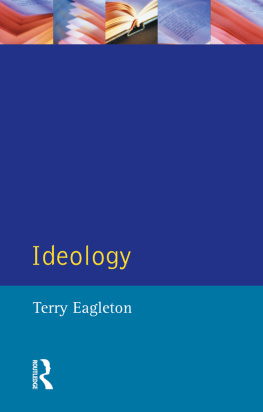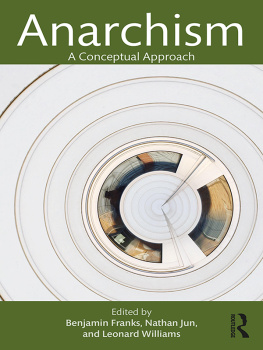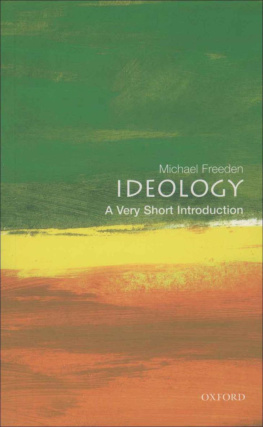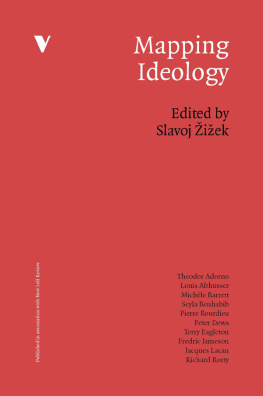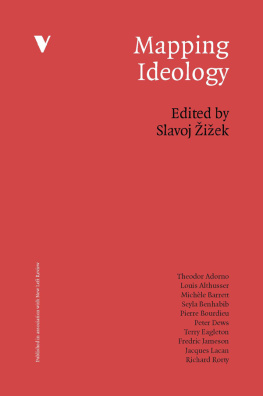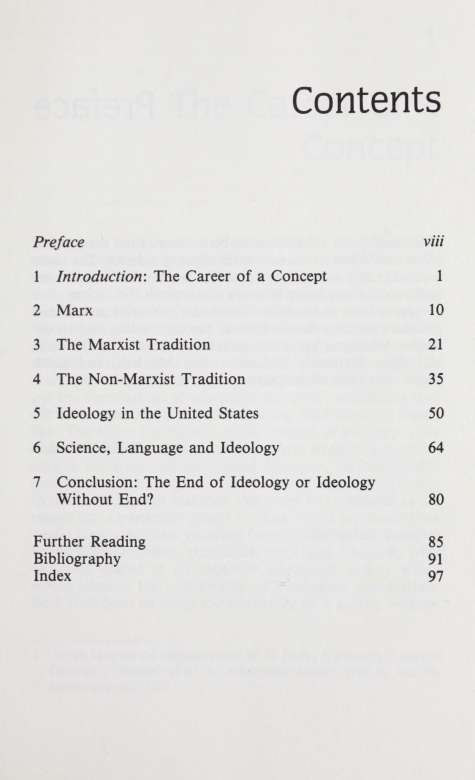This book made available by the Internet Archive.
For Oliver
Preface
This small book is intended to be no more than the briefest of introductions to an extremely slippery subject. The topic is as wide as it is fundamental to the social sciences and I am well aware of my being able merely to touch the surface. But I hope at least to stimulate the reader's interest and I have therefore added a detailed list of further reading and an extensive bibliography. I am grateful to Jean Gil, Gabrielle McLellan, Stephanie McLellan, Gay Mitchell, and Keith Webb who have all helped to improve the book.
David McLellan
The Career of a Concept
Ideology is the most elusive concept in the whole of social science. For it asks about the bases and validity of our most fundamental ideas. As such, it is an esssentially contested concept, that is, a concept about the very definition (an4 therefore application) of which there is acute controversy. 1 With significant exceptions, the word ideology comes trailing clouds of pejorative connotation. Ideology is someone else's thought, seldom our own. That our thought might be ideological is a suggestion that we almost instinctively reject lest the foundations of our most cherished conceptions turn out to be composed of more shifting sand than we would like. Therefore, the history of the concept of ideology is the history of various attempts to find a firm Archimedean point outside the sphere of ideological discourse, an immoveable spot from which to observe the levers of ideology at work. In the main Marxist tradition this point has consisted in the search for a particular group or class whose representatives would have a peculiar vocation for non-ideological thought. In the Enlightenment, rationalist, empiricist tradition, trust has been placed in an objective science of society which would unmask the irrationality of ideological conceptions. Both traditions envisage the possibility of a society without
1. On this idea, see the original article: W. B. Gallie, 'Essentially Contested Concepts', Proceedings of the Aristotelian Society, 1955-6, Vol. 56, particularly pp. 17Iff.
idelology - whether a Marxist society where ideology seen as bulwark of class power will no longer be necessary or a capitalist society where the self-evident norms of a rational market economy will impose themselves. But the spectre of the relativism of all claims to truth which has plagued humankind, at least since Plato's Protagoras denied the possibility of objective truth, refuses to be laid. Any examination of ideology makes it difficult to avoid the rueful conclusion that all views about ideology are themselves ideological. But avoided it must be - or at least modified by saying that some views are more ideological than others. For the simple thought that all views are ideological encounters two difficulties: first, that it borders on the vacuous, since it is so all-embracing as to be almost meaningless; secondly, and more damagingly, it contains the same logical absurdity as the declaration of Epimenides the Cretan who declared that all Cretans were liars.
Unlike many other similarly controversial terms (democracy, say, or liberty), ideology is less than 200 years old. It is the product of the social, political and intellectual upheavals that accompanied the Industrial Revolution: the spread of democratic ideals, the politics of mass movements, the idea that, since we have made the world, we can also remake it. According to the German social philosopher Jurgen Habermas, these new world-views
emerge from the critique of dogmatism of traditional interpretations of the world and claim a scientific character. Yet they retain legitimating functions, thereby keeping actual power relations inaccessible to analysis and to public consciousness. It is in this way that ideologies in the restricted sense first came into being. They replace traditional legitimations of power by appearing in the mantle of modern science and by deriving their justification from the critique of ideology. Ideologies are coeval with the critique of ideology. In this sense there can be no pre-bourgeois ideologies. 2
Traditional beliefs, just because they are traditional, tend to be static and to rely on a restricted, hierarchically structured, source of authority. But as the power of tradition wanes, so ideas are opened up to contestation and begin to compete. The myths of the past served mostly to promote values around which societies could integrate and continue as
coherent entities: myths did not compete. Ideologies, on the other hand, were the products of an increasingly pluralist society and were associated with rival groups whose sectional interests they served. 3 Whereas traditional religion concentrated on the interaction between the everyday life of individuals and the sacredness of an other-worldly dimension, the secularized universe of ideology concerned itself with public projects of this-worldly transformation to be legitimized by apparently self-justifying appeals to science and to reason. The organizing myths of past societies were inherited and constituted a given framework that transcended the social world; ideologies are typically our own creation drawn from painstaking investigations of our own societies. This tendency is, in turn, enhanced by the increased democratization of the political process. The industrial revolution involved also a communications revolution in which literacy expended enormously in parallel with the unprecedented cheapness of books and newspapers. The increase in information available and the fact that it issued from highly divergent sources meant that its interpretation became problematic and competing frameworks, reflecting different interests, emerged to make sense of all the new material. But these frameworks, or ideologies, in spite of their inevitably partial origin, had to have a universal appeal. For with the increased participation of the masses in politics, persuasion rather than mere command was the order of the day. In the age of liberty, fraternity and equality, the only approaches that could even aspire to universal acceptance were those based on the apparently universal ideas of reason and science.
Like so many other enticing things, the word ideology is of French origin. But although directly a product of the French
2. J. Habermas, Towards a Rational Society, Boston, 1970, p. 99. For a similar view of the modernity of ideology see, for example, K. Mannheim, Studies on the Left, p. 55 and M. Oakshott, Rationalism in Politics, London, 1967, p. 21.
3. See further on this the excellent article: B. Halpern, "'Myth" and "Ideology" in Modern Usage'. History and Theory, Vol. 1, 1961, especially pp. 135ff.

